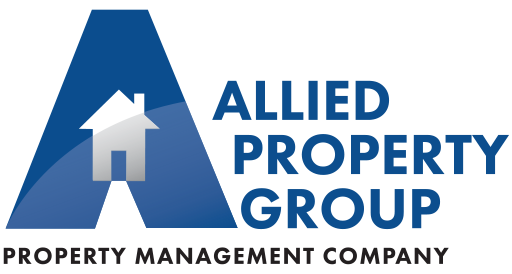By: Ana Sanchez Rivero, CAM
I went to a presentation before an HOA a few years ago. I remember being all excited about the presentation and the possibility of picking up the business. We had just opened Allied Property Group and any business at the time would have been welcomed. The Board for that community had decided to schedule the presentation during a Special Assessment meeting. From the moment I walked in to that meeting, I felt the tension. The owners were all talking at the same time and some were even screaming.
The Board was engaged in this screaming match with the owners. I kept thinking of my mother and how she calls me everytime there is a condominium meeting gone wrong being showcased on the Spanish news. It truly felt like this meeting was evolving into its own telenovela. After sitting in the meeting for 30 minutes, and all of a sudden, a board member picked up a chair and was about to throw it at an owner in the audience.
Needless to say, I walked out of the meeting and did not make the presentation. All too often this is common place in Association meetings. Especially during Special Assessment and Budget meetings. After managing for almost 15 years and serving in this industry for more than 25 years, I have learned there are three (3) things that can help you run a successful meeting in a tense situation. The first thing you want to make sure you do is set the stage early on; review the agenda and do not deviate from it. The second thing is provide supporting documentation that the owners need to better understand the circumstances surrounding the special assessment or maintenance fee increase. Last, but not least, is that as a Board you always must maintain control.
It is important that associations consult their attorney for the best way to implement this procedures. Every association is different and so are their governing documents. You want to make sure that before you implement any new rules you are aware of the proper procedures. So how do you set the stage? You set the stage by introducing yourself and the other board members. If you have a professional present at the meeting to provide a more detailed explanation, introduce them as well and explain why they are there. You then state the procedural rules that you have adopted and carefully review the agenda to make everyone aware of the topics you will discuss.
It is always a good idea to have extra copies of the agenda. Sometimes we have a section on the sign up sheet where the owner can indicate if they wish to address the board on any particular matter on the agenda. You should be clear that everyone who signs up to speak will have the opportunity to address the board and/or ask questions. Inform the owners that they will have a 2-minute limit in which to address the board. The time limit is irrelevant, you can make it 2, 3 or 5 minutes; the point is to set a limit for each owner to ensure that everyone has an opportunity to address the board. I recommend that you inform the owners the reason for having time limits. People are more open to accepting procedures that they understand.
You can give the owners this opportunity to speak at the beginning or end of the meeting. Some would argue that you can put it at the beginning of the meeting so that the owner can express their concern and not have to sit thru the entire meeting. I am a fan of doing it at the end of the meeting. If you did a good job during your meeting and explained everything, the number of questions that remain to be asked will be minimal.
It is fine if you do not use this method. There are a variety of other ways in which to control owner participation and maintain order. Whatever method you choose is fine, just have a method in which to recognize owners and give owners the opportunity to speak.
Secondly, you should provide as much information as possible related to the subject matter. I say this because a lot of times owners do not attend the board meetings where the actual discussion and considerations that lead to the decision to increase the maintenance fee or that led to the special assessment. It is important to have your documentation ready to show to the homeowners that you need to pass this special assessment.
If you are replacing an item that breaks down or the roof, it does not hurt to have owners present at the meeting that are suffering from a leak in their unit. The owner affected by this roof leak will become an advocate for the new roof and the special assessment to cover it. In addition, have the invoices present to show the amount spent on those repairs. A professional opinion to show the cost savings by replacing the item versus repairing it is also helpful. As a qualified specialist, vendors are in a unique position to offer more details than you or your manager.
You also want to provide the proposals that you have acquired from the different companies/ vendors. If it is an increase in the budget that is making the meeting contentious – provide evidence of the expenditures that caused the increase. If it was an insurance premium – provide copies of the invoices. If you are not able to bring these documents to the meeting, in the very least post them on your community website or ask owners to provide their email address so that the proposals can be emailed to them. Make it as easy as possible for the owners to access this information.
Don’t forget to bring the minutes of past board meetings where these items were discussed or again, inform the owners that it is available to them at the association’s website. Do not chastise owners who did not attend past board meetings. They may not have been able to attend for a valid reason.
But all of this is lost if you do not gain control of the meeting and stick with the agenda. As Board members you have business to discuss; business the affects the association. Your Board meetings is where you discuss this business. If you allow owners to run the meeting, you will never discuss that business and you will not achieve your goal. If owner is being disruptive, in a polite but firm manner inform the homeowner that he is being disruptive and is out of order. If the owner continues to be disruptive then ask the owner to leave the meeting. Everybody should follow the rules as they allow everyone the opportunity to get the information that they need.
My experience has been that if you lay this groundwork, state the rules, you provide the documentation and you give everyone an opportunity to speak, the owners will respond positively. Do not forget to always consult with your attorney before implementing any of these rules so that he or she can guide you as to the proper way in which your Board can implement these procedures.
Click here to listen to this week’s podcast and don’t forget to subscribe so that you can receive future podcasts. Please like us on our Facebook page and send in your contact information to receive future blogs and information on upcoming educational seminars free to Board members.



